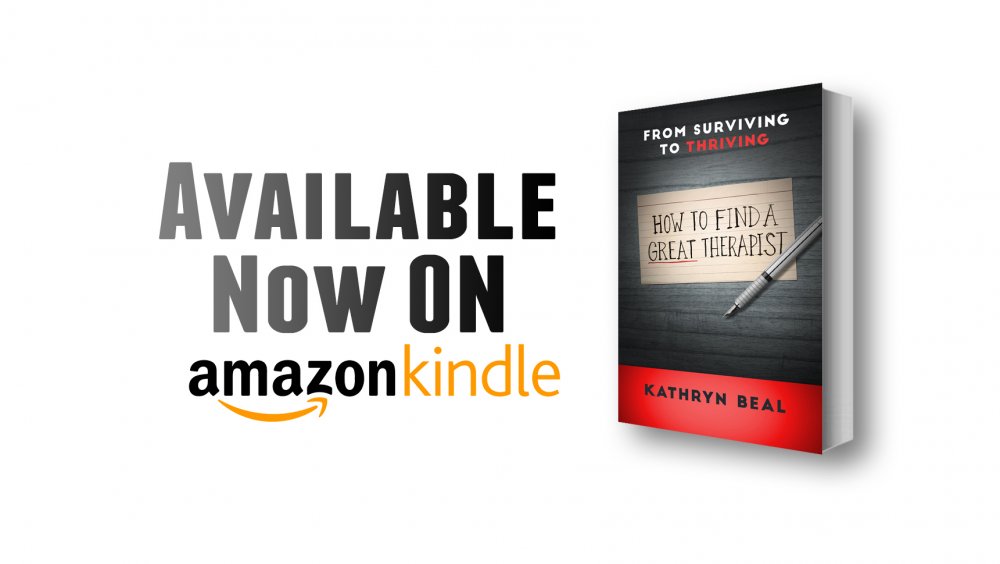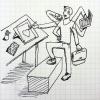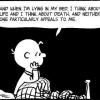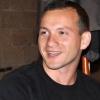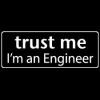Search the Community
Showing results for tags 'book'.
-
Recommended to me by @Dylan Lawrence Moore, I found Rich Dad, Poor Dad (not sure if the comma is part of the actual title since I don't think it is but I put it there anyway) as an audiobook on YouTube. And by GOD ABOVE was it the most productive and empowering red pill I've ever swallowed! Not only did it "reveal" (I put quotes because if you've been following Stefpai some of the stuff should already be known to you--however if you're a fresh face to the real world then it's as good as any a first step!) a lot of truths and facts about society, money, and etc. but it fundamentally encapsulates the core distinctions between the Rich, the Poor, and the Middle Class. The audiobook for the book proper is only 3 hours long--I won't attempt to boil it down to a couple paragraphs because every line is worth listening to and frankly I'd do a disservice if I tried. You can find a way to break down 3 hours into diggestable bits as needed and you'll be well-rewarded for it. As a "spoiler" though I'll point out what Robert Kiyosaki claims (and I think rationally and reasonably) to be the primary distinction between the Rich and the Middle Class/Poor: Financial Literacy. Financial Literacy is essentially knowing what wealth is, knowing how to separate assets from liabilities and the wisdom to tell the difference before sealing the deal. Public School education isn't much and College Education is becoming increasingly worthless (worse than worthless actually; about a few hundred thousand dollars of bad debt + anywhere from 2-10 years of your life, potentially!) and I have to say this book as an introduction to financial literacy was worth far more than anything I've ever learned from the government schools. Even more than my ability to read and do basic math, I'd dare say. I don't care how old you are or how busy you are: you will be helped by this book and the younger and fresher you are the more empowered you'll be in the long run by this information. Don't be the Poor Dad and embody the Poor Dad's ways of thinking and being; become the Rich Dad and invest in yourself. And this free audiobook is definitely an infinitely profitable return on investment!
- 11 replies
-
- 2
-

-
- recommendation
- book
- (and 5 more)
-
NOTE: I am not a father, nor am I a father to be. I am far from becoming a father let along a husband or boyfriend, I'm too busy building he nest to seek life for the nest. This question is both for me in advance as well as for me as a novelist trying to impart the principles of peaceful parenting and self-knowledge onto the general reader. Childhood trauma, as is known, is the root cause of most dysfunction and generally results in a very repetitive cycle across generations. What I am interested in is how someone in these scenarios is likely to turn out (both in terms of character traits as well as life choices after childhood) and what is most likely to be the time when they (because I am crafting characters who revolt against the cycle and endeavor to make their children into something opposed to their own history) pursue self-knowledge, and what they ought to do at that point. Below is a list of various traumatizing circumstances, some more common than others, and what I am looking for is not how someone with all these problems but rather any one of these problems individually (any exception to this request I'll point out explicitly). 1: Malnurishment/Food deprived childhood: I am also curious as to how much this would affect a boy and girl's body given how dieting as a child correlates with height and body mass. 2: Regular beatings by authority: Including both parents, caretakers of orphanages, civil authority, etc. 3: Regular fights with peers: From a child's point of view especially. 4:Molestation: For both boys and girls. 5: Viewing someone else be molested by an elder. 6: Gang violence in both neighborhood and among young children. Think '20-'30s Italian mobster kind of gangs, not modern gangs, although the distinction may or may not be significant. 7: Verbal abuse by hypocritical authority. 7.5: EXTREME physical abuse from authority: think chains and restraints, as well as medieval punishments such as hanging from within a gibbet (a metal cage that restricts all bodily movement). 8: Physical abuse by hypocritical authority. This is somewhat distinct from arbitrary beatings, but I don't know by how much. 9: Negligence from/by elders and authorities. 10: Childhood in isolation from any kind of caretaker or guardian. 11: A rather specific childhood in which a princess grows up without family, for they committed suicide/were killed in fighting during a very big WWII-style monumental war. This may be distinct from number 10 because the character is wealthy enough to not be deprived of basic resources, but deprived of human contact let alone affection, up until the age of 12, where positive human contact (through a friend) is only for half a year until the age of 18, when total isolation resumes. What kind of person would she be? What would it take for her to pursue self-knowledge and what would likely happen if she doesn't? 12: A childhood which combines numbers 1,2,3,5,6,7,7.5, and 8. This character was raised in an orphanage and abused very severely growing up, while surrounded by hundreds of other abused orphans in an environment best described as Jew in a Concentration Camp during the Holocaust, with emaciated bodies and abusive elder orphans aplenty. What kind of life would someone growing in this hell likely have, what kind of traits would they exhibit, and what is the most likely time for this character to pursue self-knowledge and reformation? I understand these questions are mostly hypothetical and therefore unimportant compared to real issues faced by real people, however, I want to be able help those who have suffered some of these abuses by demonstrating important characters with these scars overcoming them and reforming, as well as those not doing so as a counter-example. I would appreciate any advice I can get, both as a novelist, and a future father and husband.
- 4 replies
-
- fatherhood
- peaceful parenting
-
(and 1 more)
Tagged with:
-
I have finally finished and published my book, An Invitation to Planet Big from The Beard, and it is now available on Createspace: https://www.createspace.com/6937515 The book should be available on Amazon between Wednesday March 8th and Friday March 10th. (Will add a link when available, I get higher royalties from Createspace, but Amazon sales allow for reviews and higher awareness and may enable other benefits like free shipping, not sure how Createspace sales work for shipping/reviews on Amazon) No ebook version available. Cheers! Edit: Amazon link: https://www.amazon.com/dp/1543140092/ You can have it email you when it becomes available. Should be by available by Friday.
-
My beautiful amazing wife wrote a book that many could benefit from reading. Several people from the community were involved. Phil Johnston designed the cover. Cheryl Hulseapple edited the book. And several others helped by reading and providing useful feedback in the writing process. Thank you so much to those involved! Amazon wouldn't let me post my review of the book, on account of being the author's husband, but I thought I would share it here: Get the book here for $0.99! On a personal note, to you, from me. I've had a lot of conversations with people about therapy over the years, as a member of the boards. There are a lot of legitimate questions and reservations people have around therapy. I've noticed too that many people have had an attitude of "I know I probably should, but eh..." and don't get around to it. Let this book help you make that decision. It doesn't feel good to be conflicted about this. Or to know that you should try it, but don't act. I doubt I would be blissfully married, have a great career I am very motivated in, and be expecting a child of my own at the end of the year if I hadn't got into therapy. I would probably still be unemployed/underemployed, depressed and anxious all the time, not living my values, and playing video games every day. I don't know for sure where I would have ended up, but it scares me to think about. Plus, cool book cover, right?
-
- 3
-

-
- listener project
- book
-
(and 2 more)
Tagged with:
-
Hi, guys! I wrote a book titled How to Find a Great Therapist, and I'd love if y'all would check it out. It's only 99 cents! The inspiration for writing this book came, in large part, from the many stories I heard on these boards about your struggles to find a good therapist. I also have FAQ at the end which consists of questions that came exclusively from FDR listeners. It's available on Amazon here. Please let me know what you think! Book Description: "This book is not just about finding a good therapist. It is about finding a great therapist. The kind of person who will inspire you, challenge you, and change your life. The kind of person who will help you make real progress. "If you are just looking for someone to talk to, this book is not for you. Throw a rock and you will find a mediocre counselor who will gladly take your money, go through the motions of “listening” to you for an hour, week after week, and never encourage you to change. And maybe you don’t want to change. That’s fine. Just check out another book, because this one will only stress you out. "However, if you want to thrive rather than survive, use this book to demystify the often muddled field of psychology. You will learn: How to identify an awesome therapist. How to know if you’ve found a bad one. What to expect from therapy. How to trust yourself. And how to improve your odds of permanent growth. "The author takes her years of “couch surfing,” during which she saw over twenty therapists and coaches, to simplify the process and help you make life changes efficiently and with the support you need. "This short book is jam-packed, full of principles that you can use to feel confident about an often confusing and stressful transition in your life. Make the choice to change your life and find a great therapist."
-
- 7
-

-
- therapy
- self-knowledge
-
(and 3 more)
Tagged with:
-
- 5 replies
-
- 4
-

-
- The God of Atheists
- Book
-
(and 3 more)
Tagged with:
-
I found this book and it's absolutely mind-blowing. It's like someone took a chunk of Stefan and put him in a Dane. The book is about the psychological manipulation of collectivism that has Scandinavian countries in its tentacles. I think this is really important because one of Bernie Sanders's main talking points is "Ooooh look at Denmark they're the happiest country in the world! Socialism!" and this book pokes some serious holes in that commonly held belief from the eyes of a red-pilled Dane himself. The site where you can get the PDF or audiobook is http://manipulism.com/
-
- 1
-

-
- book
- manipulation
-
(and 5 more)
Tagged with:
-
Hello people, hope things are going well for you all! I have finally published my self-help book ''Dear Self'', and wanted to share it with you awesome people here in the community! The book is pretty short, it is an introduction to journaling and being curious and open with yourself. For now, I have it up for free over at https://www.smashwords.com/books/view/484220 , so if you'd like to check it out! If you read it and enjoyed it/got something out of it, I would very much appriciate it if you would leave a review of it. Also, if you thought it was really worthwhile, you can hop over to http://www.amazon.com/Dear-Self-self-therapy-introspection-journaling-ebook/dp/B00OKM850G/ref=sr_1_2?ie=UTF8&qid=1413561283&sr=8-2&keywords=dear+self (or just search it on amazon), and buy a copy. I'd really appriciate it
-
I've released the current version of "Chapter 3 - On Nothing, Space, and Matter" of my book, "The Beard's Last Call: For a New Hope"! Wordpress.com site: https://thebeardslastcall.wordpress.com/ Title Pages: https://thebeardslastcall.wordpress.com/2015/06/08/title-pages/ Table of Contents: https://thebeardslastcall.wordpress.com/2015/06/08/table-of-contents/ Chapter 1 - On Language and Words: https://thebeardslastcall.wordpress.com/2015/06/08/on-language-and-words/ Chapter 2 - On Truth and Understanding: https://thebeardslastcall.wordpress.com/2015/06/08/on-truth-and-understanding/ Chapter 3 - On Nothing, Space, and Matter: https://thebeardslastcall.wordpress.com/2015/06/08/on-nothing-space-and-matter/ This represents about 6-7% of the total current book content. Share if you like it and let me know what you think, good or bad! Thanks for your interest. Donate to help - Bitcoin: 1NBA1GQiVZ73W2FyzHeTAffywbYx66PeH8 Edit: You can contact me by email at [email protected]
-
Hello FDR! I'd like to get some feedback on a project I am pursuing at the moment I am in the process of writing a book on the Mecosystem(if you have not heard of the term before, it is a word that as far as I know Stefan coined, it is basically Internal Family System http://en.wikipedia.org/wiki/Internal_Family_Systems_Model). I want to basically introduce the concept of Mecosystems and give the basics of how one can work with ones Mecosystem, inspired by both Stef's podcasts on it, IFS theory, and how I have worked with it. My question to you guys is, if you were (or still are) new to the concept of you not having one personality, but actually several, what kind of questions would you ask of the person proposing this theory? Have a good day folks
- 6 replies
-
- 1
-

-
- mecosystem
- therapy
-
(and 3 more)
Tagged with:
-
FDR has given me a lot, and it's time to give back. Money is not currency in this community, but self knowldge is. I am an avid reader of self help books, I read about 2 or 3 a year. One in particular I have read about 10 times and it is still my solid companion wherever I go. For me this book, is goes beyond the obvious. It explains the why there is trauma when parents neglect children. In a a nutshell this books goes into detail why we are not happy in the moment, why we need to practice short term acceptance in order to achieve long term changes and happiness. Acceptance is practised by not trying to change the truth. This is what causes anguish and frustration, I have come to terms with what I now identify as "existential pain". Whish I define as being uncomfrotable without realling knowing why. Me explaining this topic is doing this book an injustice. http://www.ahalmaas.com/books/diamond-heart-2-freedom-to-be I would appreciate comments about this topic, from people who have read the book rather than summaries of the book. I would give a shout out to Mr Molyneux himself to give the book a try. It would make for an excellent podcast reviewing the book. I am not affiliated with this orgasiation in any way. Enjoy the read Karabesh
-
- ahalmaas
- Diamond Approach
-
(and 3 more)
Tagged with:
-
I have a couple of book recommendations The Boy Who Was Raised as a Dog by Bruce Perry Perry is a child psychiatrist who specializes in early childhood trauma. In the book, he discusses many of his former patients who had suffered through terrible abuse and/or neglect and children, and its lasting effects. He goes into great detail about the effects of abuse on brain development. He also tells of his attempts to heal the victims. I had read this book long before discovering Stefan's material, and because of it, I was already on board with everything that Stefan has to say about parenting. Perry had already convinced me that children are not resilient, like so many like to claim, and that most people's adulthood issues stem from early childhood trauma. He made me realize that parents, who seem like great parents to the outside viewer, can do irreparable harm to their children without anyone realizing it. When the child then grows up to suffer from depression, drug addiction or personality disorders, or winds up hurting other people, so many people either think it happened in a vacuum or that the parents didn't spank the child enough. Nurtureshock by Po Bronson and Ashley Merryman The authors discuss the many mistaken notions that we have about about parenting and how the science disagrees. For example, many people think it's a good thing to praise their child's intelligence in order to encourage them academically. In actuality, this tends to discourage further learning. The reason for this is that when a child is called smart, they don't want to take the risk that they will be thought of as otherwise. So they'll tend to do activities that are easier and they'll shy away from doing things that can't master immediately. Instead, the parent should praise the child's hard work, focus or concentration. The child has to learn that they can accomplish things with hard work. Anyway, I thought you all might like to look into these. If any of you have read them, I'd like to hear your opinions.
- 2 replies
-
- 1
-

-
- book
- recommendation
- (and 5 more)
-
Hello everyone! I have been writing on what will be my first book on self-knowledge (my first book in anything for that matter). I will publish it through amazon as a kindle-book. The book will focus on the concept of Self, or true self as Stef usually calls it, and how to utilize it in self-therapy through journaling. It's a pretty short book (around 6k words), but when I wrote it and before I wrote it, I felt that I wanted it to be short, concise and to the point, so that it will be exposed to more people. Also, I think it will encourage readers to try it out quicker since it wont take up so much time as perhaps other books on self-therapy. What I am asking for now, is for a few awesome FDR people to read my draft and give feedback on it. No requirements of any kind, I'd like to get as much perspectives as possible so it will be a book that will appeal to as many types of people as possible. The feedback I want is: -Is something not explained well enough? -Is something missing? -Have I made some philosophical errors? Stuff like that. Spelling as such will be taken care of later. Want to help out? Throw a PM my way! If you give feedback, I'd be happy to include you in the acknowledgements part of my book, in whatever way you fancy Have a great day everyone!
-
- self-knowledge
- author
-
(and 5 more)
Tagged with:
-

Book Recommendation: In Defense Of Women
nathanm posted a topic in Men's Issues, Feminism and Gender
I've been reading H.L. Mencken's "In Defense Of Women" recently. I would highly recommend picking it up http://www.gutenberg.org/ebooks/1270 First of all, if you read any Mencken your brain is going to be stretched out big time. Partially because it's way before our time, but mostly because of the language. I have to look up at least one word he's using on nearly every other page. But he can also be bloody hilarious and scathing. Carlin, Hicks, Hitchens etc. they are all good in that regard, but nobody writes a sick burn like Mencken.- 1 reply
-
- 2
-

-
- mencken
- in defense of women
-
(and 1 more)
Tagged with:
-
I enjoy that Stefan is focusing on men's rights; it is a topic that I have been passionate about for a long time. A decade or so ago, I found this book: http://www.revolucionantifeminista.org/wp-content/uploads/2009/07/how-can-women-make-the-rules.pdf It is a bit dated and occasionally the tone is quite confrontational, but I highly recommend reading it. It contains hundreds of examples of "pheminism," or female sexism. Jack Kammer, the author, was inspired to write it after seeing this (just imagine if it was about black people or any other group!): The Rules a fax dated April 14, 1997 and posted on a woman’s office wall in Washington DC • The female always makes The Rules. • The Rules are subject to change at any time without prior notification. • No male can possibly know all The Rules. • If the female suspects the male knows all The Rules, she must immediately change some or all of The Rules. • The female is NEVER wrong. • If the female is wrong, it is due to a misunderstanding which was a direct result of something the male did or said wrong. • The male must apologize immediately for causing said misunderstanding. • The female may change her mind at any time. • The male must never change his mind without the express written consent of the female. • The female has every right to be angry or upset at any time. • The male must remain calm at all times unless the female wants him to be angry and/or upset. • The female must under no circumstances let the male know whether or not she wants him to be angry and/or upset. • The male is expected to mind read at all times. • The female is ready when she is ready. • The male must be ready at all times. • Any attempt to document The Rules could result in bodily harm. • The male who doesn’t abide by The Rules lacks backbone and is a wimp.
-
- feminism
- mens rights
-
(and 1 more)
Tagged with:
-
I watched a video where Stefan mentioned a book called "Men's Fear of Women" however, I can not find it on amazon or searching for it via google. I was hoping you would know the book and the author he is referring to. Here is the exact point when Stefan mentions it http://youtu.be/BlIrmHOfeA8?t=20m59s I'm assuming it might be this one but I really want to know for sure - http://www.amazon.com/dp/0156304198/ref=rdr_ext_sb_ti_hist_1
-
So I am contemplating on possible upcoming projects that I will launch to have some income and promote myself in the market and liberty movement. I want to do something productive while I still have youth and complete freedom... (I'm a 16 year old unschooler) ... A big passion I have is writing, and I have been pondering the possibility of writing - and in hopes eventually publishing - my own book on a topic relevant to my daily life. We live in an age of uncertainty, but one thing is for sure and that is freedom related philosophies like anarchism/voluntarynism and unschooling are blossoming in astonishing feats that have no yet been recorded. What a joy it is to live in this time. After hours of past research and more to come, I have a very vague conceptualization and a foggy idea of what I might want to write about that would possibly empower the freedom movement in education. I figured it would be great if I wrote a book on unschooling one day soon, if I focus on what i'm doing right now, read more on it, gathered lots of facts, and finally package it all into a book. But I of course want it to be more philosophical and not like a guidebook or something. Though those are very practical, I want something more in-depth and brain stimulating and enriching for couch sitters like myself who have the willingness to sit down and for a moment live inside there mind, before snapping back into physical reality to find that they had their regular dose of brain food for the day. An idea of what the book might be entitled is "The Anatomy of Unschooling: a philosophical approach to education." ... But I have a problem, and that is a general shortage of ideas enlisted in the book. My question to my fellow Freedomain Radio philosophers alike is what would you like to see come out of this book? What questions should I answer, and what are some ideas that should be listed alongside this book? What should absolutely be included if I really want to make a philosophically related book? Thanks for the answers if you happen to leave a comments below!
- 6 replies
-
- unschooling
- book
-
(and 3 more)
Tagged with:
-
I apologize if this is in the wrong section. I just recently finished a book called, "Do Androids Dream of Electric Sheep" By Phillip K. Dick. I had to read it for college and this is the first time I have ever read a book and been extremely confused by it, both emotional and intellectually. I was curious If anyone else has read the book and has any thoughts to share or any insight to what the book was suppose to get across to the reader. Thank you
-
Prepper Press kindly sent me a free copy of "Indivisble: With Justice for Some" by Troy Grice and ask me to review it. My results can be found here.
-
- indivisible
- book
-
(and 1 more)
Tagged with:
-
Listening to "Escaping Doublethink" I heard Stefan Molyneux mention that we aren't born with communication skills. He said it's good to go through development books and kind of make a list of what missing and where the deficiencies are. (In childhood development). I'm curious on what some of those books might be? Are there any good recommendations, I'm don't know where to start so I apologize if I'm not giving enough information. Because of that this question is a bit open ended. Thanks for the suggestions.
-
If you could turn the hands of time, what would be your first book/books on self knowledge?
- 14 replies
-
Back when Ayn Rand wrote, or when Plato wrote, Shakespeare wrote, or any other classic artist/writer created works, it was probably not so glorified during that time period.The level of quality and profundity, is the "core value" and the reason why it gets brought up in the future and christened as a "classic". This is the similar phenomenon as a start up with a core product that has solid value to people, but is in the development phase where they have not realized a return on their investment.I feel like Stefan's works, like Practical Anarchy, will be studied in the future when we do get a free society, or when there are organized philosophiy-oriented schools (online or offline) that will anarchy, in government/econ/gametheory courses. The quality is just so totally there.


.thumb.jpg.d380a938ea39f7e6f999d8eb8b5d613c.jpg)

